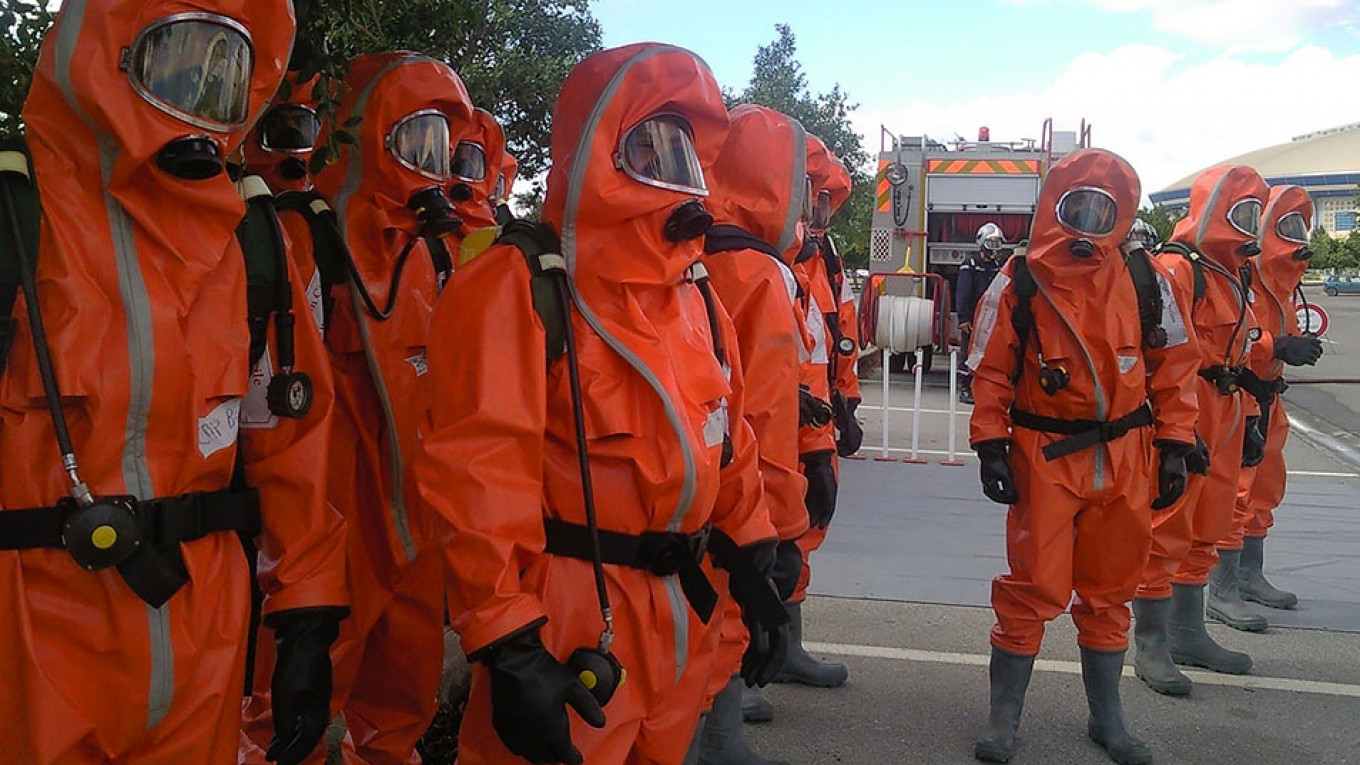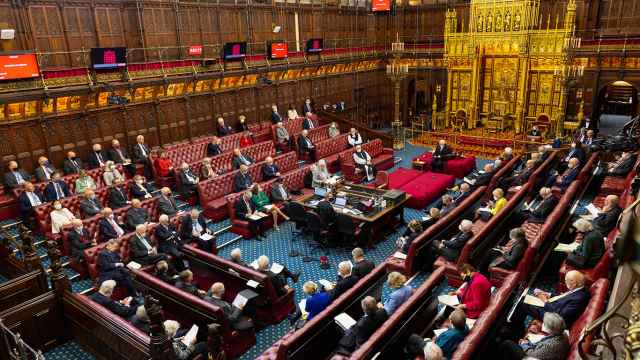European Union envoys gave a final stamp of approval for a new mechanism to punish chemical weapons attacks by targeting individuals blamed for using banned munitions regardless of their nationality.
France proposed the legal regime to combat what Paris and London say is the repeated use of chemical weapons by Russia and Syria. It would allow the EU to impose sanctions more quickly on specific individuals anywhere in the world, freezing their assets in the bloc and banning them from entry.
Foreign ministers from the EU’s 28 governments adopted the new sanctions regime on Monday.
“The restrictive measures target persons and entities who are directly responsible for the development and use of chemical weapons,” the Council of the European Union said in a statement.
Violators will be subject to asset freezes and travel bans under the new regime and EU nationals will be banned from transferring funds to them.
Sanctions will also be levied against those who provide financial, technical and material support for chemical weapons use, as well as those who assist, encourage or are associated with the weapons.
The rising use of nerve agents has alarmed Western governments two decades after they were banned under an international treaty. Recent cases include the assassination of the half-brother of North Korean leader Kim Jong Un in 2017 and the attempted murder of Russian double agent Sergei Skripal in March.
The EU already has sanctions lists for Syria and Russia, but under the current system individuals must be added to special country lists. These are complex to negotiate and difficult to expand because some EU governments are reluctant to criticize close partners, particularly Moscow.
It was not immediately clear if Britain would propose adding to the list two Russians that it had charged with attempting to murder Skripal and his daughter Yulia in the English city of Salisbury.
France pushed the EU sanctions regime in part because the United Nations Security Council has been in a deadlock over how to set up an independent inquiry for chemical attacks in Syria. Russia rejected a joint draft resolution by Britain, France and the United States earlier this year.
Reuters contributed reporting to this article.
A Message from The Moscow Times:
Dear readers,
We are facing unprecedented challenges. Russia's Prosecutor General's Office has designated The Moscow Times as an "undesirable" organization, criminalizing our work and putting our staff at risk of prosecution. This follows our earlier unjust labeling as a "foreign agent."
These actions are direct attempts to silence independent journalism in Russia. The authorities claim our work "discredits the decisions of the Russian leadership." We see things differently: we strive to provide accurate, unbiased reporting on Russia.
We, the journalists of The Moscow Times, refuse to be silenced. But to continue our work, we need your help.
Your support, no matter how small, makes a world of difference. If you can, please support us monthly starting from just $2. It's quick to set up, and every contribution makes a significant impact.
By supporting The Moscow Times, you're defending open, independent journalism in the face of repression. Thank you for standing with us.
Remind me later.







